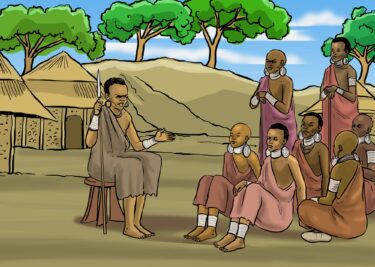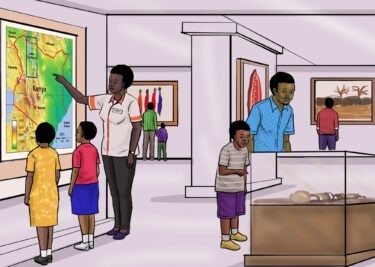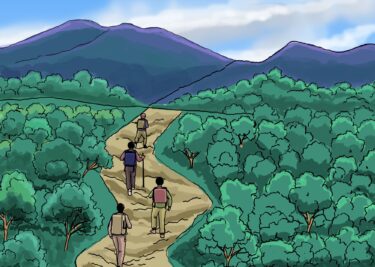Bututia: Meru’s Divine Lake

Image credit: Tigania West site
When you think of a monument, a lake is unlikely to come to mind. The national monument known as Bututia Sacred Lake is perhaps lesser known, but its significance to the Tigania West area where it is located speaks volumes about its need for protection. It is a lake imbued with spectacular natural beauty and key ecological features. More than that, its waters carry indispensable cultural and historical importance to the Ameru community.
A Crucial Water Body
So, what attributes make this lake a phenomenon unlike any other? To begin with, when the Meru North area is considered, the biodiversity found in and around Lake Bututia is simply unmatched. Over 100 birds and animals consist within the orbit of the lake. It supports this enormous ecosystem and as a result, the lake is astoundingly scenic.
Among the animals supported by the lake are domestic animals. The Miathene, Thari and Amatu areas nearby rely on the lake as sustenance for cattle. Livestock can often be seen at the lake’s shores lapping up its water and browsing the bordering vegetation. To cap off the breathtaking environment, the Nyambene, Kieiga and Nchuura hills surround Bututia like towering guardians of the low-lying lake below.
The Lore of a Lake
These are not the only guardians charged with the sacred lake. Initially, the Maasai community lived on the land around the lake. But after they left to move towards Laikipia, six Ameru clans were appointed as custodians of the lake due to its role as a shrine. The Antu-a-iiya, Amatu, Mwiganda, Thing’amburi, Mbuya and Amakia clans took on this duty in honour of the lake’s centuries-old history as an ancestral temple where spiritual and traditional practices were performed. The lake was a site to appease gods who were believed to provide relief, especially during drought. For this reason, rainmaking ceremonies were frequently performed to beseech gods for an end to dry spells.
The practice would entail the slaughtering of a sheep by spiritual representatives from the six custodial clans. From there, the sheep would be divided into two unequal parts. The right-hand side would be given to warriors who would wade to the deepest part of the water to offer the food in return for Ngai or rain believed to be released from the heavens. Afterwards, millet would be cast over the lake to placate the waters.
Legend has it that at the pinnacle of these rites, grey storm clouds would billow above signifying the end of a dry season. Trust in Bututia’s powers travelled beyond Meru. The lake became a place of prayer for elders of communities as far-flung as the Somali and Borana. These communities would undertake pilgrimages to visit the lake’s potent waters. While there, they would offer sacrifices and the last ritual took place during the ill-famed drought of 1984.
Bututia’s Acknowledgement
For the lake’s role as a pillar of history, culture and environmental importance, it was gazetted as a national monument. Therefore, as of 28th November 2003, Bututia found yet another guardian in the form of the National Museums of Kenya (NMK). And the declaration was necessary. The lake has faced challenges in the way of human incursion. Some wildlife has shifted away from the lake due to this and the piling up of sediments choking out aquatic life. The UNDP, Meru Government and NMK are in collaboration to chart the way forward for a lake that has been a core feature of Northern Meru.
Despite these dangers, the lake was turned into a kind of resort. Before the pandemic restrictions, the area attracted visitors looking for fresh air and to be one with nature.
We appreciate the abundant history that has emanated from the waters of Bututia Sacred Lake. It has been the lifeblood of a community for generations and continues to be a source of nourishment both physically and spiritually.
Have you heard about the ceremonies that took place at Lake Bututia? Do you believe in the water body’s mystic powers? Let us know in the comments!
#KeMonuments



